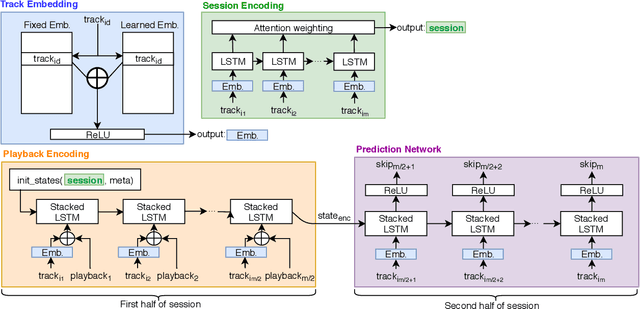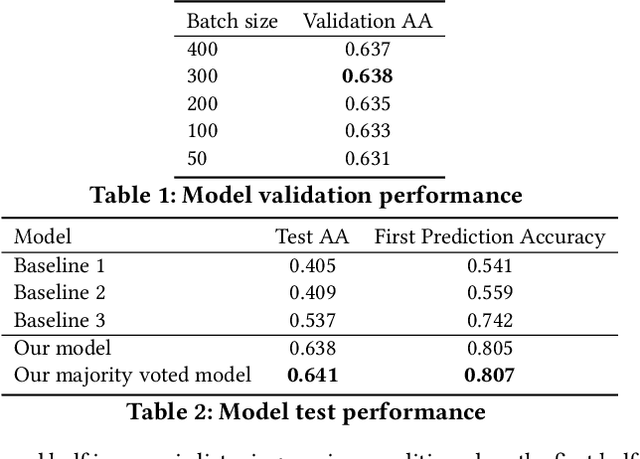Modelling Sequential Music Track Skips using a Multi-RNN Approach
Paper and Code
Mar 20, 2019

Modelling sequential music skips provides streaming companies the ability to better understand the needs of the user base, resulting in a better user experience by reducing the need to manually skip certain music tracks. This paper describes the solution of the University of Copenhagen DIKU-IR team in the 'Spotify Sequential Skip Prediction Challenge', where the task was to predict the skip behaviour of the second half in a music listening session conditioned on the first half. We model this task using a Multi-RNN approach consisting of two distinct stacked recurrent neural networks, where one network focuses on encoding the first half of the session and the other network focuses on utilizing the encoding to make sequential skip predictions. The encoder network is initialized by a learned session-wide music encoding, and both of them utilize a learned track embedding. Our final model consists of a majority voted ensemble of individually trained models, and ranked 2nd out of 45 participating teams in the competition with a mean average accuracy of 0.641 and an accuracy on the first skip prediction of 0.807. Our code is released at https://github.com/Varyn/WSDM-challenge-2019-spotify.
 Add to Chrome
Add to Chrome Add to Firefox
Add to Firefox Add to Edge
Add to Edge